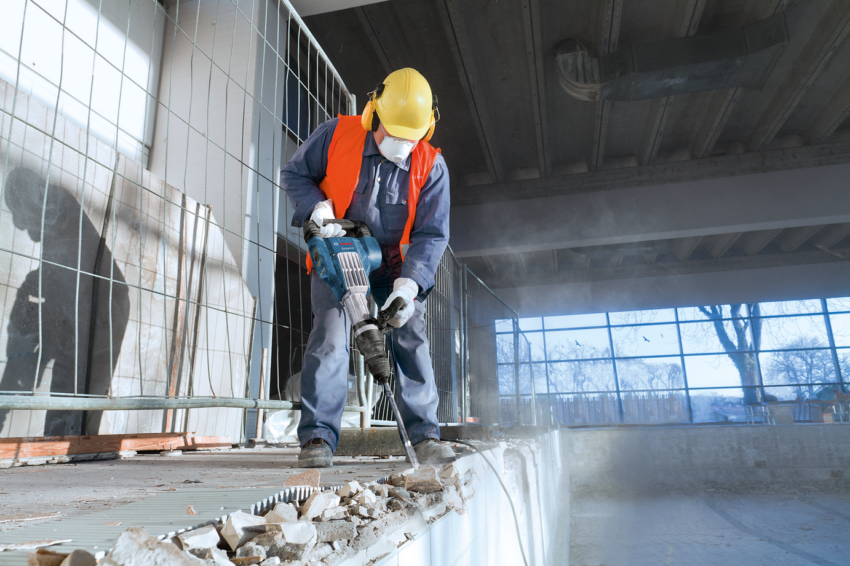Table of Contents
When it comes to undertaking a commercial demolition project, there are several important factors to consider. Whether you’re clearing a site for new construction, renovating an existing property, or removing an outdated structure, understanding the process and knowing what to expect is crucial for ensuring a smooth and efficient project. Before you hire a demolition contractor, it’s essential to have a solid grasp of what the project entails and how to prepare for it.
1. Initial Site Assessment and Planning
One of the first steps in any commercial demolition project is a thorough site assessment. Before any demolition work can begin, the demolition contractor will need to evaluate the building, the site, and the surrounding area. This includes identifying any hazardous materials (like asbestos or lead), determining the structural integrity of the building, and understanding the specific requirements of local building codes and regulations.
The contractor will also assess the scope of the project, which could range from partial demolition (removing certain parts of a building) to full-scale demolition (completely leveling the structure). The contractor will help you determine the most efficient approach for your specific needs, considering factors such as safety, cost, and timeline.
2. Permits and Legal Requirements
Before the demolition process begins, various permits and approvals will be required. These vary by location, so it’s important to work with a contractor who is familiar with local regulations. A licensed demolition contractor will help you obtain the necessary permits to ensure that the demolition is legal and safe.
This step is essential to avoid fines or delays during the demolition process. If hazardous materials are present, special permits may also be required for their removal and disposal. A reliable contractor will ensure all legal requirements are met and handle the paperwork, saving you time and hassle.
3. Safety Considerations
Commercial demolition is inherently risky, so safety is a top priority throughout the project. Safety planning includes ensuring the proper protection of workers, surrounding buildings, and the general public. Your contractor will have protocols in place for dealing with potential hazards, including electrical and gas lines, unstable structures, or contaminated materials.
A thorough risk assessment will be conducted to identify any safety concerns, and personal protective equipment (PPE) such as helmets, gloves, and safety goggles will be required for everyone on-site. Moreover, barriers and signs will be erected to keep unauthorized individuals away from the hazardous demolition zone.
Before you hire a demolition contractor, make sure they have a proven safety track record and follow strict safety standards. Look for contractors who are insured, licensed, and have workers’ compensation coverage in case of accidents.
4. Demolition Methods and Equipment
The methods and equipment used for commercial demolition will depend on the type of building and the scope of the project. Common demolition techniques include mechanical demolition (using large machinery like excavators and bulldozers), deconstruction (dismantling the structure piece by piece), and explosive demolition (using controlled explosives to collapse the structure).
The contractor will choose the method that best fits your project’s needs, timeline, and budget. For example, if the building is located in a crowded urban area, mechanical demolition may be preferred to minimize risk and disruption. On the other hand, if the project involves a larger structure in an open area, controlled explosives may be used for faster results.
Heavy machinery such as excavators, cranes, and skid steers will likely be used on-site. The contractor will need to coordinate the delivery, use, and removal of these pieces of equipment. Be sure to discuss the equipment requirements with your contractor before the project starts to understand the logistics involved.
5. Site Cleanup and Waste Disposal
Once the demolition is completed, a crucial part of the project is site cleanup and proper waste disposal. A large commercial demolition project can generate significant amounts of debris, including concrete, steel, wood, and other materials. It is essential that the contractor provides clear plans for managing and disposing of these materials responsibly.
Some materials can be recycled, which not only helps the environment but may also reduce disposal costs. For example, steel can be recycled for reuse, and concrete can be repurposed for new construction. Be sure to ask the contractor about their waste management policies and whether they offer recycling options.
If your project involves hazardous materials, the contractor will need to follow strict protocols to safely remove and dispose of them. This may require specialized equipment and disposal methods to comply with environmental regulations. Always ensure your contractor follows proper disposal guidelines to avoid future legal and environmental issues.
6. Timeline and Budget
The timeline and budget for a commercial demolition project will vary depending on several factors, including the size and complexity of the structure, the demolition method, and the condition of the site. Typically, smaller projects may take a few days to a week to complete, while larger or more complex demolitions can span several weeks.
Before you hire a demolition contractor, ask for a detailed timeline and budget breakdown. The contractor should be able to provide an accurate estimate based on the project’s scope and any special requirements. Keep in mind that unforeseen challenges, such as discovering hazardous materials or unexpected structural issues, may lead to delays or additional costs.
To avoid surprises, ensure that the contract clearly outlines all aspects of the project, including the scope of work, timelines, costs, and any contingencies for unexpected issues.
7. Communication and Project Management
Throughout the demolition project, clear communication with the contractor is essential. You should expect regular updates on the progress of the project, any challenges encountered, and changes to the timeline or budget. A good contractor will keep you informed and work closely with you to ensure your needs are met.
Project management includes managing the logistics of the demolition, coordinating with other contractors or subcontractors, and ensuring all safety measures are adhered to. Before you hire a demolition contractor, ensure they have strong project management experience and a solid reputation for completing projects on time and within budget.
Conclusion: Before You Hire a Demolition Contractor
A commercial demolition project is a complex task that requires careful planning, proper safety measures, and a professional contractor with experience and expertise. Before you hire a demolition contractor, be sure to assess the scope of your project, understand the necessary permits, prioritize safety, and confirm that the contractor is equipped to handle your specific needs. With the right contractor, your commercial demolition project will proceed smoothly, setting the stage for the next phase of your construction or renovation plans.

